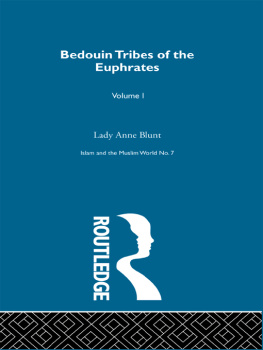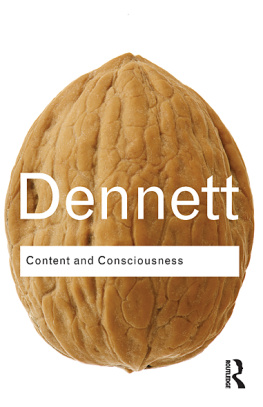BIBLIOGRAPHICAL NOTE
TO THE 1965 EDITION
The following bibliography is intended for the reader who would wish to consult more detailed monographs on the history and ethnology of Northern Nigeria.
Arnett, E. J., The Rise of the Sokoto Fulani, 1929. Paraphrase and in some parts a translation of Muhammad Bellos Infaku I-maisuri (Arabic text, C. E. J. Whitting, 1951).
Barth, Heinrich, Travels and Discoveries in North and Central Africa, 5 vols., 1857. New Edition, 1965.
Bovill, E. W., Caravans of the Old Sahara, 1935.
Burdon, J. A., Historical Notes on Certain Emirates and Tribes (Nigeria, Northern Provinces), 1909.
Crowder, Michael, The Story of Nigeria, 1962.
Daniel, F. de F., Historical Notes, Katsina Emirate, 1928.
Fage, J. D., An Introduction to the History of West Africa, 1955.
Freemantle, S. M., History of the Katagum region comprising the division of Kano Province, Journal of the African Society, vol. x, nos. 39, 40; vol. xi, nos. 41, 42, 191112.
Hiskett, M., Tazyn al-Waraqt: A Study of the Life and Times of Abdullh b. Muhammad, First Emir of Gwandu, 1963.
Hogben, S. J., The Muhammadan Emirates of Nigeria, 1929.
Hogkin, Thomas L., Nigerian Perspectives, 1960.
Al-Kti, Mahmd, Tarikh el-Fettach (translated and edited by O. Houdas and M. Delafosse), 1913, reprint 1964.
Lugard, Flora (Lady), A Tropical Dependency, 1905, reprint 1964.
Meek, C. K., The Northern Tribes of Nigeria, 2 vols., 1925.
Meek, C. K., Tribal Studies in Northern Nigeria, 2 vols., 1931.
Nachtigal, Gustav, Sahr und Sdn. Ergebnisse sechsjhriger Reisen in Afrika, 3 vols., 18791889. Reprint in preparation.
Palmer, Sir H. R., The Bornu Sahara and Sudan, 1936.
Palmer, Sir H. R., Sudanese Memoirs, 3 vols., 1928.
Palmer, Sir H. R., History of Katsina, Journal of the African Society, pp. 216235, 192627.
Al-Sad, Abd al-Rahman, Tarikh es-Soudan (translated and edited by O. Houdas), 1900, reprint 1964.
Smith, Mary F., Baba of Karo: A Woman of the Muslim Hausa, 1954.
Smith, M. G., Government in Zazzau, 1960.
Stenning, Derrick J., Sauannah Nomads: A Study of the Wodaabe Pastoral Fulani of Western Bornu Province Northern Region Nigeria, 1959.
Tedzkiret en-Nisin (translated and edited by O. Houdas), 1901. Contains the History of Sokoto by al-Hajj sad. See also a translation of the latters history by C. E. J. Whitting, History of Sokoto, 1950 (?).
Tilho, J., Documents Scientifiques de la Mission Tilho, 5 vols., 191014. See volumes ii and iii.
Tremearne, A. J. N., Hausa Superstititions and Customs, 1913.
Trimingham, J. Spencer, Islam in West Africa, 1959.
Trimingham, J. Spencer, A History of Islam in West Africa, 1962.
Urvoy, Yves, Histoire des Populations du Soudan Central, 1936.
Urvoy, Yves, Histoire de lEmpire du Bornou, 1949.
Westermann, Diedrich, Geschichte Afrikas Staatenbildungen Sdlich der Sahara, 1952. (See bibliography.)
Articles in the Encyclopedia of Islam (1913, new edition 1960 in preparation) and the Journal of the Historical Society of Nigeria should also be consulted as well as the Gazetteers done for the Provinces of Northern Nigeria.
PREFACE
The compilation contained in the following pages has been made with the object of rendering available to those interested, in a small compass, at all events some of the immense stores of facts concerning the natives of the Northern Provinces of Nigeria assiduously collected by the political staff. This information is contained scattered through innumerable reports, assessment reports, annual and monthly reports, and official letters, etc., which are kept at the Secretariat and the Provircial Headquarters, and is not readily accessible, even to those who are stationed at Headquarters and are able to command the Secretariat files. To the political officer they are quite inaccessible as a whole. Though a political officer may have the completest knowledge of the Province in which he is working, I know by experience that it has been in the past extremely difficult for him to obtain knowledge of other Provinces. Thus a man may work for many yearsan official life-time evenin Sokoto and yet know very little of Bassa, Yola, or Rornu, for instance. Indeed, his knowledge may very well be restricted for many years to the affairs connected with the district in which he is stationed, and may not extend to those of the Province even. To remedy this state of affairs a gazetteer is urgently required, and, though it would be presumptuous to use such a term in connection with the present work, it is the hope of the compiler that the following pages may be useful in the preparation of a complete work in the future, while at the same time affording a book of reference in which the more salient facts at all events may be found.
Though the work of the political department has been continual, painstaking, and up to a point very fruitful in securing a vast mass of reliable data, yet, as is inevitable when large and heterogeneous populations have to be studied, and facts gleaned viva voce from natives sometimes unwilling to impart information, much has been recorded as fact which is incorrect, and many omissions of important facts occur. These pages necessarily reflect such errors and omissions. Yet, even so, it is hoped that the publication of such erroneous information may serve a useful purpose by bringing to the notice of some individual who may be in possession of the correct knowledge in any particular instance, that this or that mistaken impression is accepted as true, and lead him to put matters straight.
It will be seen that much space is devoted to matters connected with anthropology rather than administration. Yet it is to be borne in mind a close and detailed and completest possible knowledge of the habits and customs of the native is of the first importance to the European administration. The longer we are in the country, the more the rather elementary duties of the Government in eliminating disturbances and of securing a peaceful state of affairs are completed, the larger loom the more important problems of establishing and continuing an administration which works with and for, and not against, the natural and national evolution of the natives. These can be solved only by the help of a complete knowledge of the daily life of the individual native.







